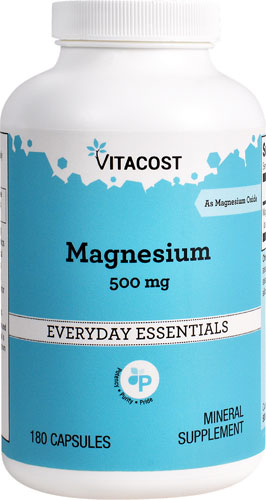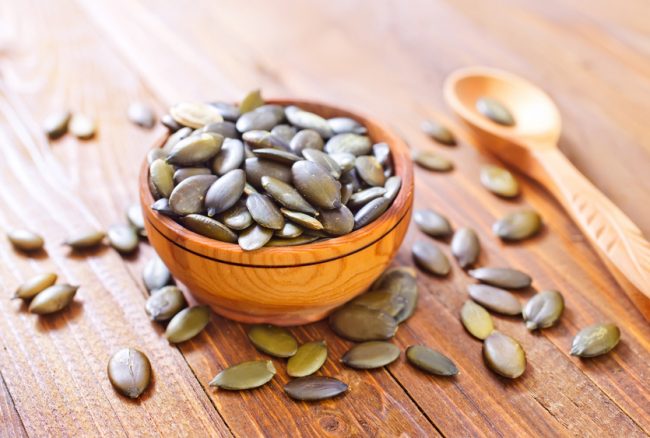Magnesium – a top mineral required by the body for proper function – is just one of many nutrients you'll find in the foods you purchase and consume. A day’s worth of eating ideally will provide the necessary amount of 310 to 420 milligrams of magnesium per day, for most adults. But let’s face it—not every day is an ideal day of eating.
Unfortunately, not getting quite enough magnesium is pretty common for many Americans. According to data from the National Health and Nutrition Examination Survey (2005-2006), 47 percent of men and 54 percent of women between the ages of 19 and 50 got less than the estimated average requirement for magnesium on a daily basis.
It’s clear that we have some work to do, but luckily, foods containing magnesium are abundant and can be easily incorporated into the diet with a little planning.
Magnesium uses in the body
Magnesium has a variety of functions on the body, and a key one is its involvement in our metabolism: the process of converting food into usable energy. In fact, magnesium is involved in greater than 300 metabolic reactions within the human body! The type of energy that the body produces to provide energy to our cells is known as ATP, and magnesium is involved in the creation of ATP molecules. Additionally, ATP molecules must be bound to magnesium in order to be active and usable.
This electrolyte is essential for the health of our organs, including the heart. Magnesium plays an important role in muscle contraction and conduction of nerve impulses throughout the body. These processes, under normal circumstances, help us to maintain a normal heart rhythm.
However, a large change in the level of magnesium in our body has the potential to majorly disrupt our usual heart rhythm – the consequences of which can be severe. Such situations that could cause a sudden change in our serum magnesium levels include vomiting, diarrhea or rapid intake of food after a period of fasting (due to the need for magnesium in the process of converting food to ATP, as mentioned previously).
The mineral magnesium is also a component of our bones and our teeth. In fact, half of the magnesium in our body is stored in the bones. Traditionally, calcium and vitamin D have been emphasized as the two micronutrients most critical for bone health, but there is evidence that magnesium is linked to bone health.*
Low magnesium is sometimes thought to be a culprit in poor sleeping habits, and it has been associated with issues such as restless leg syndrome. Supplementing with magnesium is theorized to help, due to magnesium’s role in facilitating normal muscle contractions.*
Food sources of magnesium
So, where do we obtain more of this critically important mineral? Adequate magnesium can be obtained through a varied and well-balanced diet, with no need to take a supplement. Magnesium foods include spinach, chard, navy beans, lima beans and kidney beans.
Nuts and seeds can be a good source as well, with pumpkin seeds and cashews in particular providing an impressive amount of this mineral. Grains such as quinoa are also known to be rich in magnesium.
A simple meatless meal of sautéed chard and navy beans served over a bed of brown rice would pack quite the magnesium punch. Or, try a handful of cashews for an afternoon snack.
If a magnesium supplement is taken, it is important to note that magnesium may be better absorbed in some forms rather than others. A report from the Office of Dietary Supplements indicates “small studies have found that magnesium in the aspartate, citrate, lactate and chloride forms is absorbed more completely” into the body.
This article was contributed by Kate Kanner, RDN, registered dietitian nutritionist with The Little Clinic (inside select Kroger locations). For more information about dietitian services, visit www.thelittleclinic.com/dietitians.
*These statements have not been evaluated by the FDA. These products are not intended to diagnose, treat, cure or prevent any disease.




